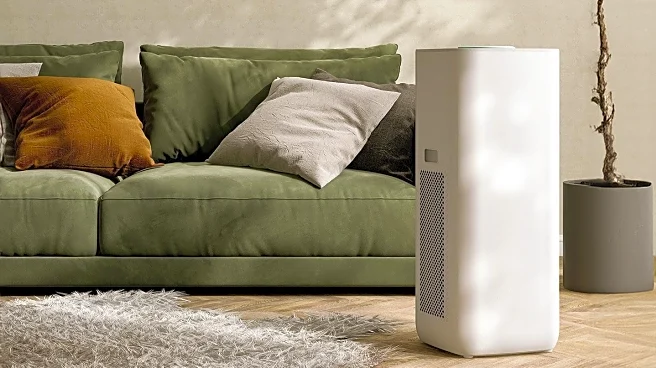What is the story about?
What's Happening?
A recent article highlights the importance of using air filters in homes to combat indoor air pollution, particularly from open fires and log burners. The World Health Organization has identified indoor pollutants as a significant health risk, contributing to millions of premature deaths globally. In developed countries, while the reliance on open fires is less, modern housing can trap harmful particles indoors. A study published in Nature found that open fires and log burners significantly increase the levels of harmful particulates, which can affect cardiovascular health and exacerbate respiratory conditions. The article suggests using high-efficiency particulate air (HEPA) filters to reduce exposure to these pollutants, as they have been shown to improve air quality and have potential health benefits.
Why It's Important?
The use of air filters in homes is crucial for improving indoor air quality, which can have significant health benefits. Poor air quality is linked to various health issues, including heart disease, stroke, and respiratory problems. By reducing the levels of harmful particulates, air filters can help mitigate these risks, particularly for vulnerable populations such as children and individuals with asthma. The adoption of air filters could lead to improved public health outcomes and reduce healthcare costs associated with treating pollution-related illnesses. Additionally, as awareness of indoor air quality grows, there may be increased demand for air filtration products, impacting the market and encouraging further innovation in this sector.
What's Next?
As awareness of the health risks associated with indoor air pollution increases, it is likely that more households will consider investing in air filtration systems. This could lead to a rise in demand for HEPA filters and similar technologies. Additionally, there may be calls for stricter regulations on indoor air quality standards and the promotion of cleaner heating alternatives. Researchers and public health officials may continue to study the long-term health benefits of air filtration, potentially influencing public policy and consumer behavior.
Beyond the Headlines
The discussion around indoor air quality also touches on broader environmental and health policy issues. As societies move towards more sustainable living practices, the balance between traditional heating methods and modern environmental standards becomes a topic of interest. The potential shift towards cleaner energy sources, such as heat pumps, could be accelerated by findings that highlight the health impacts of current practices. This transition may also involve cultural shifts, as communities adapt to new technologies and reconsider traditional practices.















